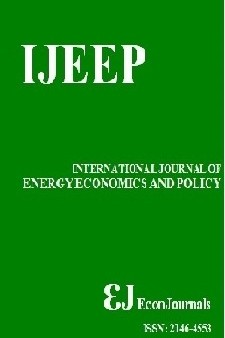Gas Flaring Effects and Revenue Made from Crude Oil in Nigeria
Gas Flaring Effects and Revenue Made from Crude Oil in Nigeria
Gas Flaring, Carbon Emission, Crude Oil Revenue,
- Başlangıç: 2011
- Yayıncı: İlhan ÖZTÜRK
Maliheh ASHENA, Hossein SADEGHİ, Kazem YAVARİ, Reza NAJARZADEH
The Effects of Oil Shocks on Turkish Macroeconomic Aggregates
Moayad Al RASASİ, Mustafa YİLMAZ
Munshi Naser Ibne Afzal, Jeff Gow
A Causal Relationship between Energy Consumption, Energy Prices and Economic Growth in Africa
Farzana SHARMİN, Mohammed Robayet KHAN
İsmail Tijjani IDRİS, Sabri NAYAN
Economic and Technical Feasibility of Metering and Sub-metering Systems for Heat Accounting
Luca CELENZA, Marco DELL’ISOLA, Giorgio FİCCO, Marco GRECO, Michele GRİMALDİ
Co-integration between Electricity Supply and Economic Growth in South Africa
Hlalefang KHOBAİ, Sanderson ABEL, Pierre Le ROUX
Elasticity of Agricultural Prices in Russia: An Empirical Study of Energy and Monetary Channels
Lyubov Vasilievna LARCHENKO, Roman Aleksandrovich KOLESNİKOV, Galina Pavlovna TUMANOVA, Valeriy Aleksandrovich KİBENKO
